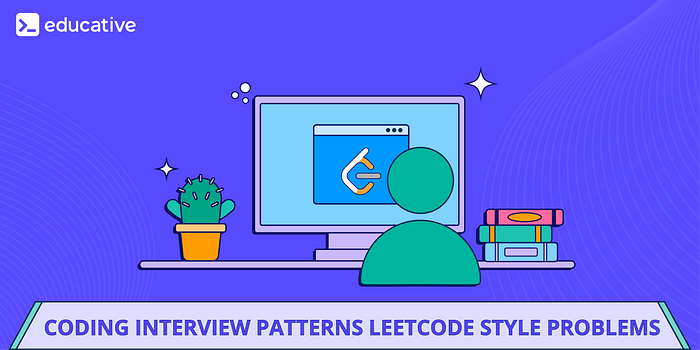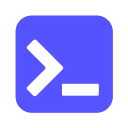LeetCode patterns you need to know before your next interview

When preparing for coding interviews, especially for top-tier companies like FAANG, many candidates turn to websites like LeetCode or HackerRank . Practicing on these sites can be beneficial because it exposes candidates to different types of questions and helps them develop their problem-solving skills. These platforms are renowned for their extensive databases of interview questions, offering a wide variety of problems to practice. However, the large number of problems itself can be a challenge. It’s easy to get lost among the multitude of questions without a clear direction, leading to the inefficient use of time and effort. Many candidates spend countless hours solving random problems without understanding the underlying LeetCode patterns, which can be frustrating and demotivating.
The solution to endless practice is to understand that the coding interview questions can be grouped together such that each group’s questions share a common strategy to solve them. These strategies, known as coding patterns, are like templates for solving specific types of problems. Each LeetCode pattern comes with its own rules, choices, and good ways of doing things, giving developers a toolbox they can use to solve many different coding problems. Also, mastering these patterns helps developers think in abstract ways and recognize patterns so they can map similar strategies for new problems they face during interviews.
This blog will examine interview preparation, highlighting the advantages of a coding pattern-based approach over exhaustively practicing LeetCode problems. We’ll compare popular platforms like LeetCode, NeetCode, AlgoMonster, and Educative, evaluating their unique features and suitability for different preparation needs. Next, we’ll introduce Educative’s flagship pattern-based interview preparation course, detailing its structure and coverage of premium LeetCode problems. We’ll also dive into the 26 LeetCode coding patterns, offering tips on recognizing and using these patterns to solve actual questions. Additionally, we’ll highlight specific roadmaps for preparing for companies like Meta, Apple, Netflix, Google, Microsoft, Oracle, and LinkedIn. Finally, we’ll conclude with some parting thoughts.
Comparative analysis
When preparing for coding interviews, selecting the right platform is key to maximizing your chances of success. Several notable platforms, including LeetCode, NeetCode, AlgoMonster, and Educative, offer tailored resources to meet different learning needs. While some focus on extensive problem-solving, others emphasize pattern-based learning, helping candidates build essential skills efficiently.
In this section, we’ll provide a detailed comparison of these platforms, analyzing their strengths, unique features, and how they cater to different interview preparation strategies. Whether you prefer an exhaustive collection of problems, or a more structured, course-based approach, you’ll find something that fits your needs. By the end, you’ll be able to make an informed decision — perhaps even finding a solution that combines the best of everything.
LeetCode: The comprehensive practice hub
LeetCode is widely recognized as the go-to platform for coding interviews, offering an extensive collection of problems ranging from easy to hard. It covers key technical topics, including algorithms, data structures, system design, and databases. However, with the sheer volume of problems available, it can be challenging for candidates, especially those with limited time or shorter attention spans, to cover every topic effectively. This often leads to some crucial areas being overlooked, making it harder to ensure balanced preparation.
Unique Features:
- Real interview questions from top tech companies.
- Weekly contests to sharpen competitive programming skills.
- Active community of learners for discussions and solutions.

NeetCode: Organized and simplified LeetCode
NeetCode removes chaos from LeetCode by providing a structured path. Its organized lists, like NeetCode 150 and NeetCode All, focus on the most commonly asked questions, making it easy to navigate frequently asked problems.
Unique Features:
- Curated problem sets, focusing on the most commonly asked questions.
- Solution explanations through YouTube videos, offering visual and verbal guidance.
- Focus on common patterns and problem-solving strategies.

AlgoMonster: Pattern-based, efficient learning
AlgoMonster is built around mastering coding patterns, which are crucial for solving interview problems. Instead of solving countless problems, it focuses on recognizing and applying patterns.
Unique Features:
- Categorizes problems by coding patterns.
- Minimalist approach to problem-solving, focusing on what matters most in interviews.
- Interactive explanations and concise examples.

Educative: The all-in-one, course-based platform
Educative provides a more structured, course-like experience, providing courses on various topics, including LeetCode coding patterns. Its interactive, text-based learning helps candidates absorb concepts at their own pace, with popular series like Grokking the Coding Interview Patterns, which covers 26 coding patterns, with lessons in six programming languages ( Python, Java, JavaScript, C++, C# , Go ).
Unique Features:
- Built-in coding widgets allow hands-on practice directly in the browser, helping you test solutions and customize test cases.
- AI-powered feedback assists in identifying mistakes and refining coding skills.
- Educative also offers its premium learners AI-driven mock interviews that can be customized by topic, experience level, company, coding patterns, or languages, providing an authentic interview simulation.
- Educative also provides specialized learning plans tailored to major tech companies like Meta, Apple, Google, Microsoft, Oracle, LinkedIn, and Netflix. It also provides solutions to LeetCode-based lists like Blind-75 and Grind-75 and offers its own Educative-77 and Educative-99 lists.

Common coding patterns
Some of the most common patterns recurring in LeetCode-style interviews include Two Pointers, Sliding Window, Tree Depth/Breadth First Search, and Modified Binary Search. As stated earlier, at Educative, we have identified 26 such patterns that cover almost all coding problems that can occur in your next interview. The following are a few patterns that are useful for handling problems that require efficient traversal and comparison of elements in arrays or lists using multiple pointers:

Patterns that deal with problems requiring efficient storage, retrieval, and manipulation of data using various data structures are the following:

There are a few patterns that are designed to solve challenges involving the quick location of elements or arranging them in a particular order within a data structure. Here is a list of these patterns covered in Educative’s course:

The following are some common optimization and selection patterns that involve selecting specific elements based on certain criteria:

Graph related patterns are used for solving problems related to finding paths, detecting cycles, manipulating disjoint sets, or understanding connectivity within graph structures. Here are the two most common patterns used for graph-related interview problems:

Interview problems that require making a series of decisions to explore, select, or optimize solutions to complex problems by leveraging either a local or global view of the problem space can be grouped into decision-making strategy-based patterns as follows:

While the above patterns are grouped based on their shared techniques and problem-solving approaches, there are several other essential patterns that stand alone due to their unique applications in solving diverse problems. Here are a few such patterns:

Just as we categorized patterns for general programming interview questions above, we have done the same for our dynamic programming course. We have identified five key patterns that can be applied to solve coding problems related to dynamic programming. This structured approach helps in understanding and mastering dynamic programming techniques in the best possible way.
Here’s the table covering the five dynamic programming patterns, along with descriptions and related LeetCode problems:

Tips for applying patterns
While extensive coding practice is valuable, mastering coding patterns is the key to success in technical interviews. It allows you to solve problems efficiently and demonstrates a deeper understanding of core computer science concepts. However, simply knowing the patterns isn’t enough. You also need to be able to apply them effectively to the problems at hand. Let’s explore some tips for recognizing and applying patterns during an interview:
- Active listening: Pay close attention to the problem description. The interviewer might use keywords or ask questions that lead to a relevant pattern.
- Identify key elements: Break down the problem into smaller components, such as data structures, inputs, and desired outputs. Look for elements or similarities to known patterns. Also, analyze the constraints and examples carefully. They often give clues about the most efficient way to approach the problem.
- Understand the problem: Ask questions to ensure you fully understand the problem and confirm your assumptions. Asking the right questions can often lead to insights about the underlying pattern.
- Think of similar problems: Try to match the problem to a problem you’ve solved before. If it resembles a known problem, the coding pattern might be similar.
- Match the pattern: Once you identify the pattern, map it to your existing knowledge and utilize the specific techniques and algorithms associated with it.
- Explain your thought process: Verbalize your thought process as you solve the problem. Discuss why you believe the chosen approach is suitable, what alternatives you considered, and how the chosen approach will help you write an efficient solution.
- Code efficiently: Implement the solution using clear and concise code that adheres to best practices. Use appropriate data structures and algorithms to demonstrate your understanding of the pattern.
While this might sound straightforward, implementing it is more challenging. It takes consistent practice to move away from our habitual coding methods and adopt a pattern-based approach to problem-solving. Regularly practicing with different coding problems will help you master the application of patterns, enhancing your problem-solving skills and pattern recognition abilities.
Wrapping up
Navigating the landscape of coding interview preparation has become increasingly nuanced, with platforms like AlgoMonster, Educative, and Algo Expert offering distinct features and approaches to help candidates excel in their technical interviews. Though each platform has pros and cons, Educative offers quality courses designed specifically for learners with diverse needs. Our user-friendly platform with interactive features gives you more structure and control over your learning experience. It also enables you to learn at your own pace while keeping track of your progress with the added support of AI-powered features.
If you ever feel like grinding LeetCode problems isn’t working, give Educative a try! We’re confident that the quality of our course content will get you the results you’re looking for.
Happy learning!

